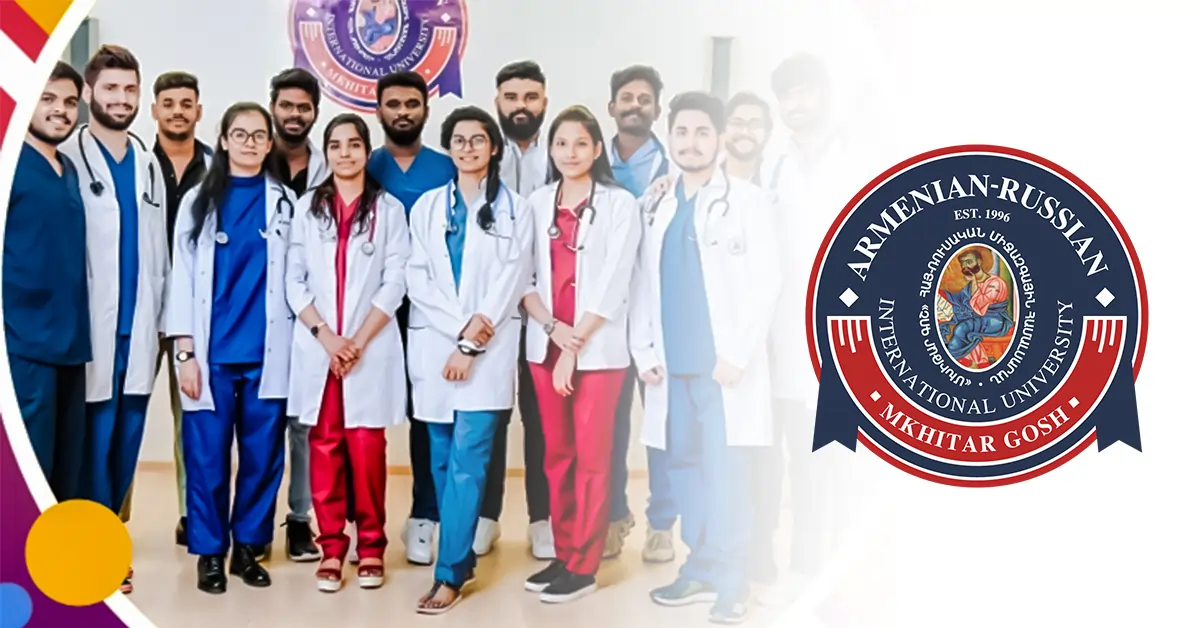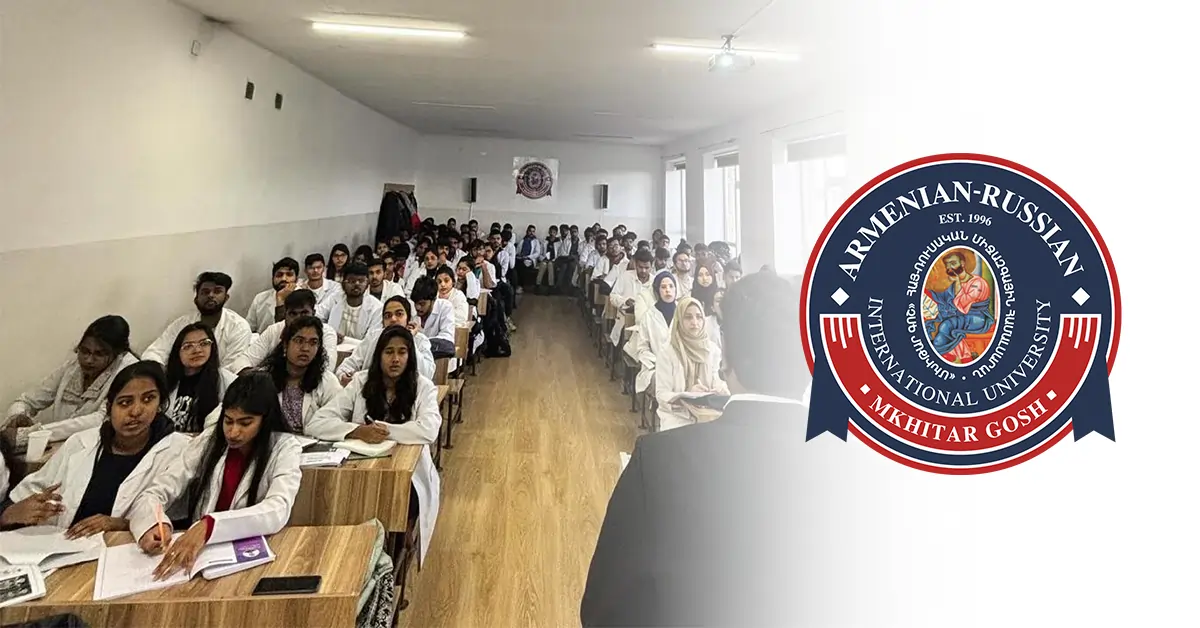
A Day in the Life of an MBBS Student at Mkhitar Gosh Armenian Russian International University
Choosing to study MBBS abroad is a life-changing decision. For many Indian students, Mkhitar Gosh Armenian-Russian International University in Yerevan, Armenia, is becoming a top destination to pursue medical education.
With its globally recognized curriculum, affordable tuition, and English-medium instruction, this university attracts hundreds of international students every year. But what does a typical day look like for an MBBS student at Armenian Russian International University (ARIU)? Let’s take a closer look.
Morning Routine: Rising with Purpose
The normal day of a student pursuing their MBBS at Armenian Russian International University starts from around 6:30 or 7:00 AM. The university students get access to a hostel which is very close to the main campus, so commuting in the morning is hassle free and short. The students enjoy a quick breakfast at the hostel or nearby cafeterias, where they have Indian and other national cuisine.
The first lecture or practical session of the day starts around 8:00 or 9:00 AM and the students start meeting by then. It is taught in English and has highly qualified professors and medical practitioners who have clinical experience in the class.
Academic Sessions: A Balance of Theory and Practice
The classes at Armenian Russian International University consist of theoretical lecture classes combined with laboratory work. Not only are Anatomy, Biochemistry, Physiology, and Histology among the taught subjects in the initial years (usually, the first and second years), but the students devote a lot of time and energy to understanding these concepts. Detailed classroom lectures are coupled with interactive models, 3D visuals, and cadaver dissection work during these sessions.
With students moving on into the hospital years, they attend hospital classes offered by the university. In this section, topics of Pathology, Pharmacology, Microbiology, Internal Medicine, Surgery, etc are the subjects of curriculum shift. Real patients are exposed to students under the tutelage of their mentors. This is one of the most enriching parts of the academic experience, as it is truly one clinical exposure.
Lunch Break: A Cultural Mix
2:00 PM is when students have a lunch break. Several eateries in the university and its surroundings serve Indian and international palates along with Armenian cuisines. Hostel kitchens are often preferred by many students because cooking does not feel like a daunting task. It is also a time for socializing, talking about assignments, or just all-round relaxing.
Clinical Rounds and Self-Study are afternoon activities.
The clinical phase uses afternoons for hospital rounds for the students. Subjects are directed to different departments where they observe diagnoses, interact with patients, and join discussions with doctors. These rounds also strengthen what students learn in class and provide an opportunity to use what they learn in class to develop a practical understanding of medical procedures and patient care.
Afternoons are usually spent in lab sessions with fellow students, group discussions, self study in the library etc. for preclinical students. There are very excellent library facilities with access to global medical journals and digital resources.
Evening Life: Fitness, Fun, and Food
That is the time to relax and regenerate. Many students will go to nearby parks, gyms, or sports clubs to do some physical exercise. There are various student-led clubs and cultural societies at ARIU that offer students to get engaged in extracurricular activities. Student life here is lively be it celebrating Indian festivals, organizing quiz competitions, or playing inter varsity events.
Dinner is around 7:00 or 8:00 PM. Students will find hostel mess facilities and local Indian restaurants to make it easier for them to enjoy familiar meals. Students tend to gather to study as a group, or to prepare for the next day's lectures.
Weekend Exploration: Discovering Armenia
Weekends are reserved for cultural and scenic adventures of Armenia, as opposed to weekdays where academics dominate. During this time period, students use this to recharge and bond with classmates over anything from the historic sites of Yerevan to weekend trips to Lake Sevan or the mountains. Besides being recreational, these outings also make them part of a well-rounded experience while abroad.
Support Services: The Home Away From Home
There is a lot of support for the international students at the university. Students are well looked after with the help from academic advisors, medical assistance, and visa renewal help, for example. Ideally, there are Indian student associations that arrange cultural events or programs and social support systems to make every student home.
Why Choose Mukhtar Gosh Armenian Russian University for MBBS?
There are various educational institutions providing medical education across the globe. However, here are a few reasons why ARIU can be the best choice for you.
- Global Recognition: It is Recognized Globally (WHO & NMC, India) and other medical councils.
- No Language Barriers: Lectures are in English so that language barriers do not stand in the way of participating in every lesson.
- Safe & Student-Friendly Environment: Armenia is one such country that is safe and student-friendly.
- Clinical Exposure: Students gain exposure to clinical experiences with affiliated hospitals even at the beginning of the program.
Conclusion
The student life at Mkhitar Gosh Armenian Russian International University is an interesting balance between academic rigor, clinical learning, and cultural interaction. All ingredients are given by the university for growing an aspiring doctor – personally, professionally, and academically provided. If you’ve been thinking about studying MBBS abroad, Mkhitar Gosh Armenian-Russian International University could be your ticket toward making a successful medical career.
FAQs
Ques 1: Is Armenian Russian International University affiliated?
Answer 1: Armenian Russian International University is indeed recognized by the National Medical Commission (NMC) of India.
Ques 2: What is the medium of instruction at Armenian Russian International University?
Answer 2: English is used in all medical courses.
Ques 3: Do students get clinical exposure during the MBBS program?
Answer 3: Yes, students start clinical exposure in affiliated hospitals from the third year onwards.
.png)


